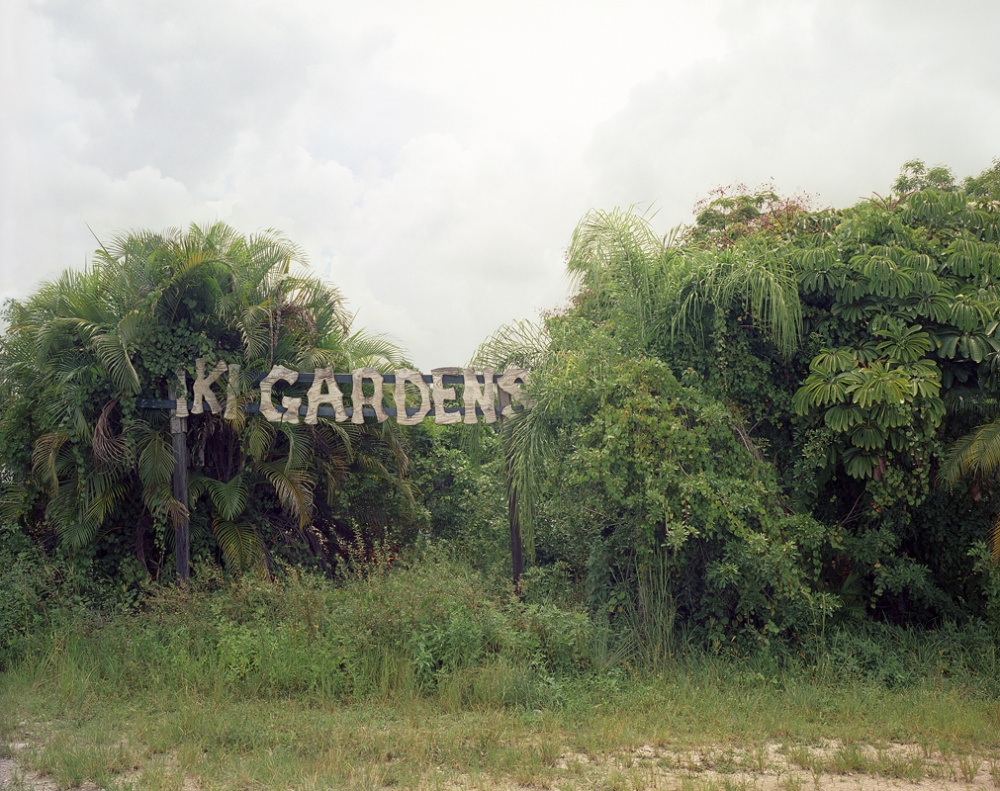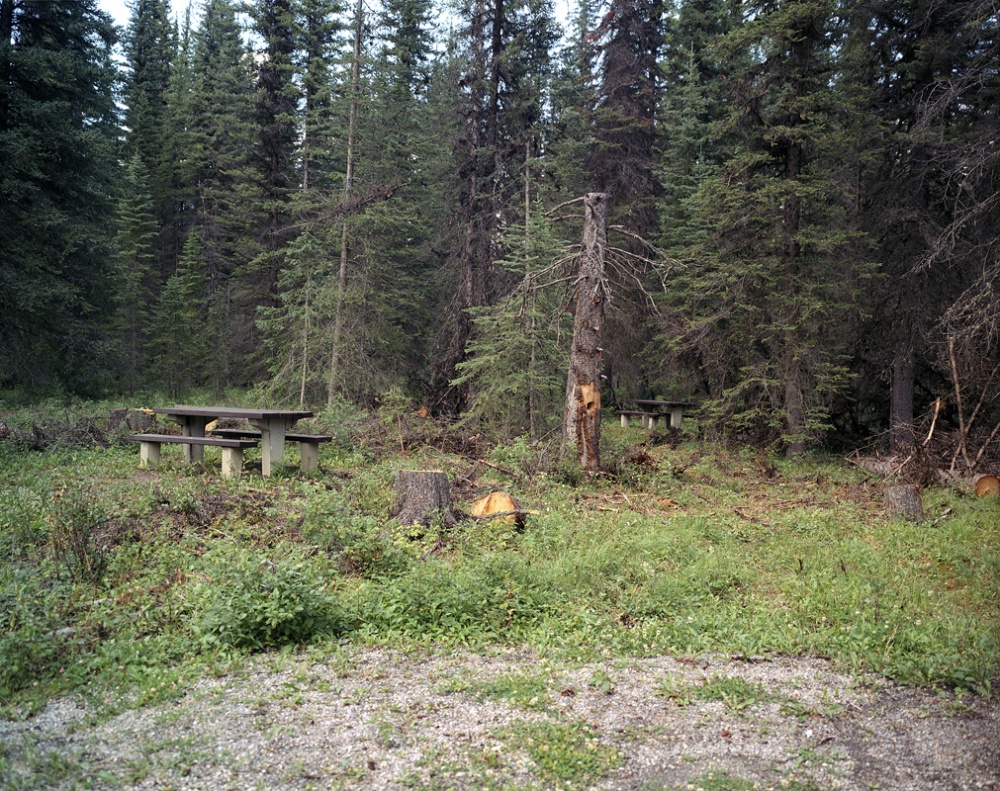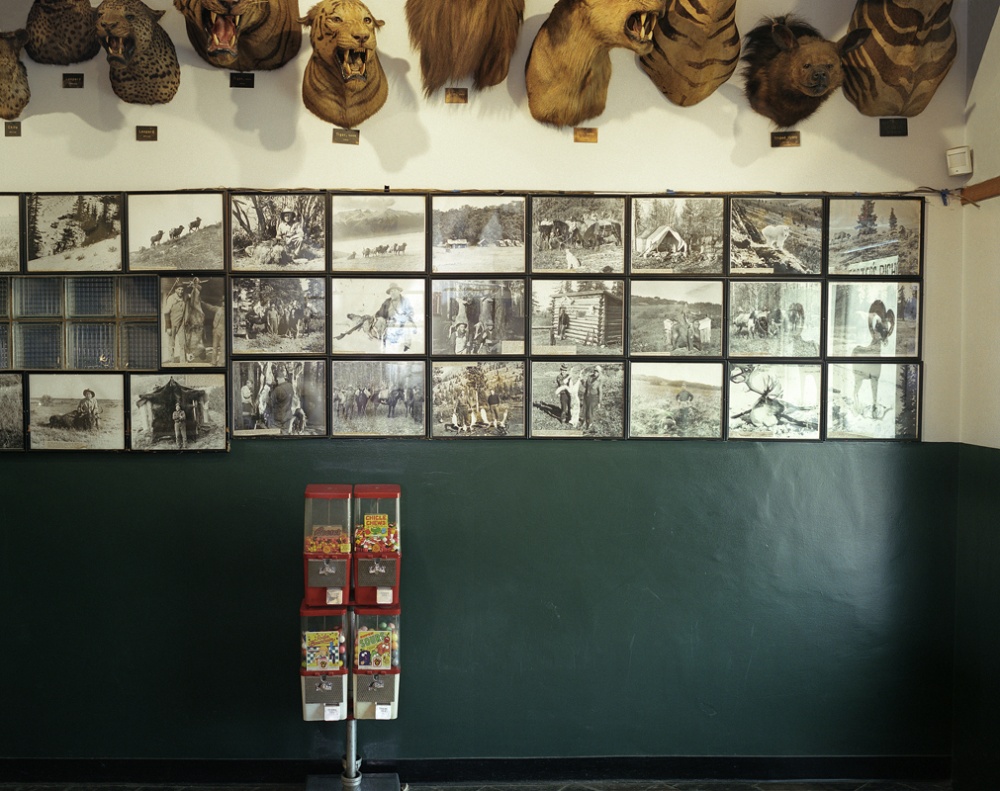All Our Pleasant Places is a series of color photographs of ruinous landscapes, amusement parks, museums, zoos, and private homes that explore the American myth of Manifest Destiny and its seemingly endless horizon of optimism and possibility. These images depict the construction of fantasy and desire in our landscape, offering a return to the innocence of the Garden of Eden, but revealing the frailty of the hopes we bring to the world.
When Puritan refugees landed in America, they did so with the hope that this new land would be a paradise. Likening themselves to the Israelites, they entered a land of promise holding more than just religious freedom. This vision fostered a cultural understanding that shaped the future development of the country, one that played itself out in relationship to the pristine landscape that lay before it. Its presence even permeated city planning and landscaping. New Haven, Connecticut was constructed to match the footprint of the heavenly city of Biblical eschatology. They were building paradise. They were building America.
From religious conviction to manifest destiny to Disneyland, America has struggled with fusing two human desires, to return to a state of childlike innocence and to realize a future utopia. Theologically and culturally these ideas are often conflated. Though antipodal, they share a core longing for purity, happiness, and enjoyment. There is a sense of wonder, awe, pleasure and fun to be experienced in Arcadia. The purity of an unadulterated landscape and a snow covered field, the wonders of flight and the magic of electric light, the creation of fantastical environments and the transplanting of exotic locales all bring us some sense of a return to an untainted way things were, or of the transformation of things to the way we hope they will one day be – through human or divine dominion.
Despite all the promise of these visions, each has failed us. They have been left empty, seeming to only inspire wonder in short spurts. Spectacular creations scattered around our country sit abandoned. We no longer visit them or participate in them. They have been made routine or impotent by our loss of wonder, hope, and expectation. New hopes are constructed, but those too pass. As we build new expectant monuments, the flagging dreams haunt the liminal spaces of our cities and our minds. Time takes its toll and our dreams of the future become the past. They are empty, both literally and figuratively. Decay hangs heavy on the dinosaur resurrected in concrete, facing extinction for the second time. Desolation tells the tale of our crippled mystical Puritan dreaming. “All our pleasant places are laid waste.”[1] But even in their vacancy, they give rise to the knowledge of former faith, stoking the dwindling fire, rekindling the flame of our paradise. The silver screens faintly flicker on.
[1] Isaiah 64:11















